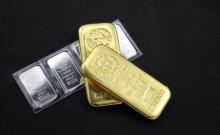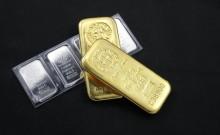The European Central Bank is ready to act quickly to boost anaemic inflation in the Euro Zone, its president said on Friday, offering the strongest hint yet that the bank will unveil fresh stimulus measures at its 3 December meeting.
Mario Draghi highlighted changes to the ECB's asset purchase program and deposit rate as possible tools to stop inflation from falling further below its target of just under 2 percent.
Draghi said the risk had increased that the ECB would miss that target. "If we decide (on 3 December) that the current trajectory of our policy is not sufficient to achieve our objective, we will do what we must to raise inflation as quickly as possible," he told a conference in Frankfurt.
Draghi said the strength of the Euro Zone's recovery was modest and the global outlook for demand, particularly in emerging countries, had worsened significantly in recent months.
His views appeared likely to meet some objections on the ECB's decision-making Governing Council, which includes the bank's executive board members and the governors of the bloc's 19 central banks.
Speaking at the same event, the Bundesbank's President Jens Weidmann, one of the most prominent critics of the ECB's ultra-easy policy, struck a more upbeat tone on the economy and made the case for waiting before taking new policy steps.
"I see no reason to talk down the economic outlook and paint a gloomy picture," Weidmann said. "We should also not forget that the monetary policy measures already taken still need time to fully feed into the economy."
Following Draghi's comments the Euro fell as low as $1.0664 and traded near three-month lows against Sterling. It then recouped its losses to move back above $1.07.
DEFENDING QE
The ECB has bought 60 billion Euros ($64 billion) a month of mostly government bonds since March to help revive inflation, but prices rose just 0.1 percent in October.
Draghi defended the ECB's quantitative easing (QE) asset purchase program, noting it had brought down borrowing costs for euro zone companies.
He said the scheme could be expanded and extended, and its composition changed to provide further stimulus while the deposit rate could be cut again to boost the impact of QE.
The ECB's deposit rate is currently -0.20 points, meaning banks are charged to park cash at the ECB, giving them an added incentive to lend, rather than pile reserves at the central bank.
Some questioned the benefits of ultra-low rates, with Deutsche Bank's (DBKGn.DE) Co-Chief Executive Juergen Fitschen telling the same conference that the ensuing increase in bank lending volumes might not be enough to offset the hit to margins the policy had also caused.
Markets were already expecting further ECB action on Dec. 3, most likely including a further cut to the deposit rate and an extension of the asset purchases beyond their scheduled end in September 2016.
The ECB will get updated inflation forecasts from its staff at the December meeting and has already said conditions have worsened since its latest estimates were published in September.
Draghi said the ECB would act if it concluded that Euro Zone inflation was at risk of falling further away from the ECB's target, echoing concerns already expressed at the October meeting of the bank's Governing Council.
"If we conclude that the balance of risks to our medium-term price stability objective is skewed to the downside, we will act by using all the instruments available within our mandate," Draghi said.
($1 = 0.9362 euros)

















